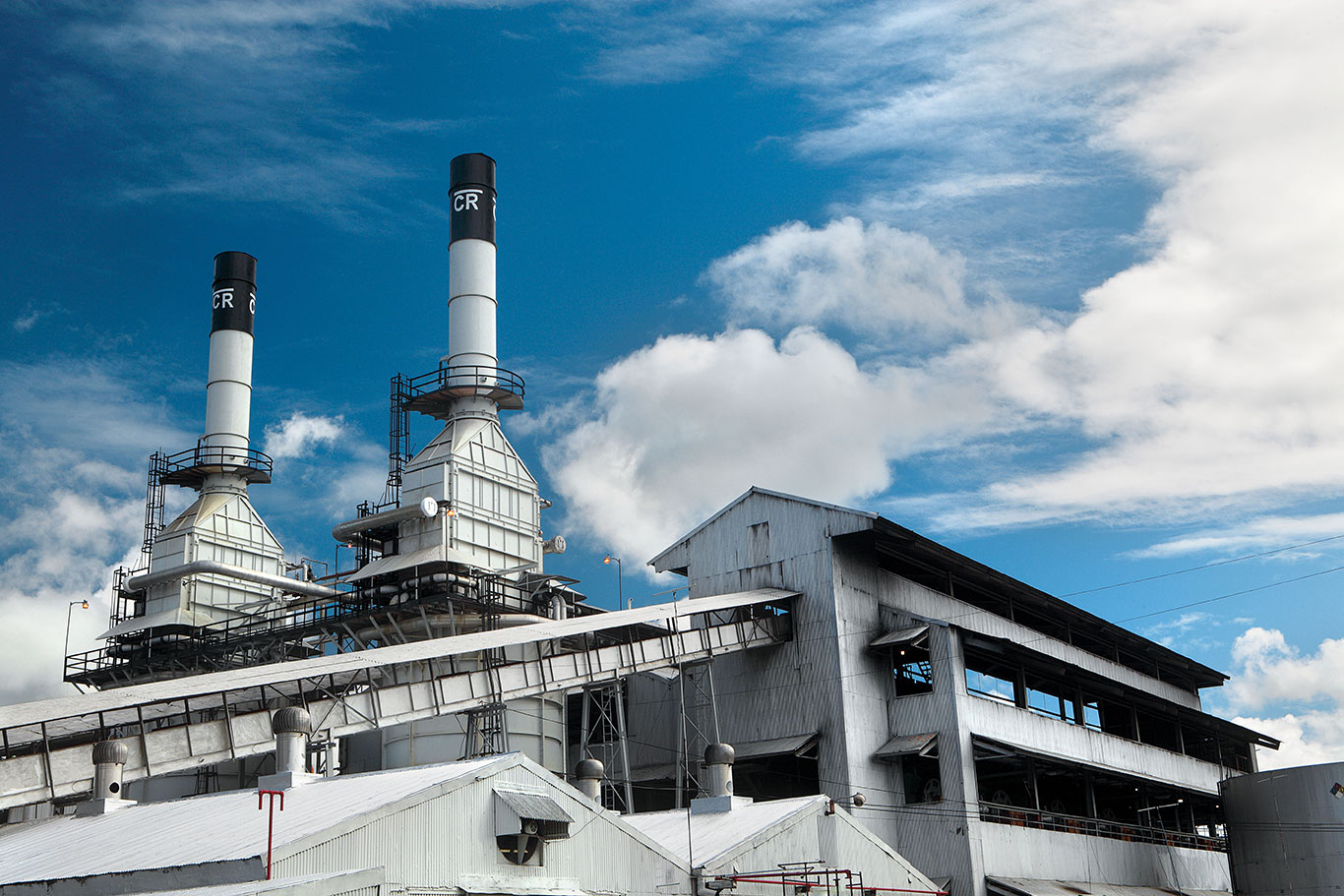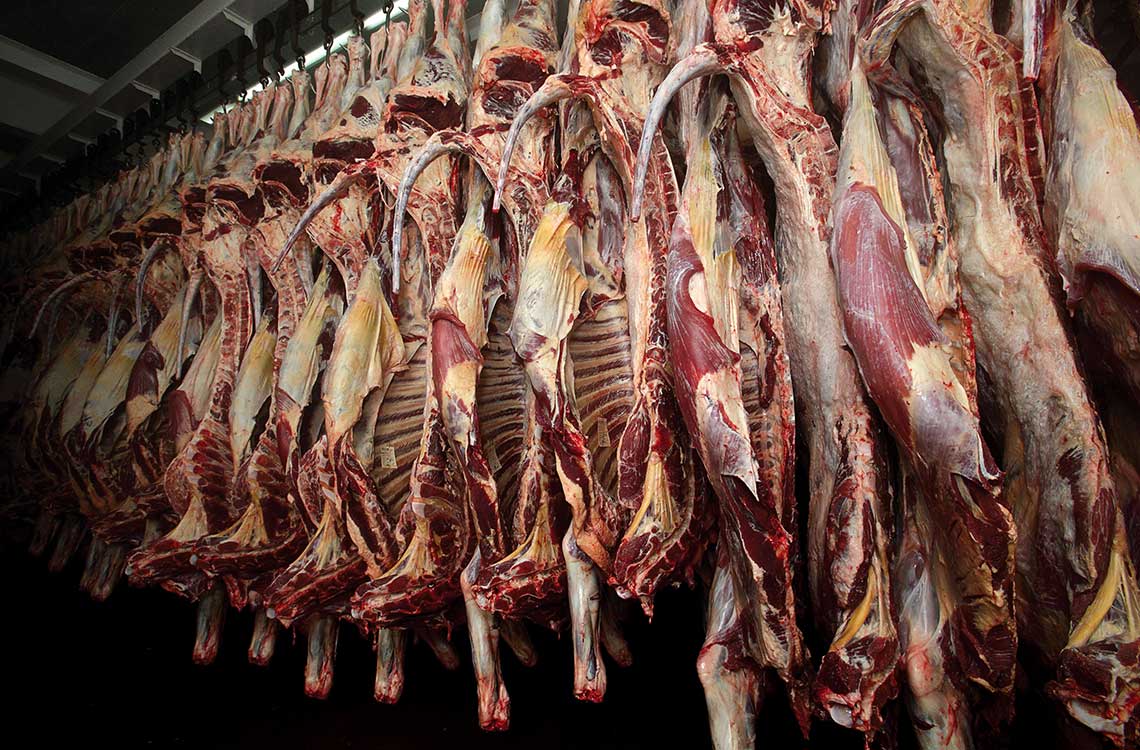Central Romana Manufacturing
With the success achieved in sugar production, the company decided to venture into other sectors of agricultural production and labor, with the support of the Dominican government. The main objective of these initiatives is to boost national agriculture and help the country’s economy. Over these past years, Central Romana has diversified its operations, making investments in a wide range of sectors.

Furfural is a product made from pentosan, which is a residue extracted from sugarcane bagasse and other agricultural waste such as corn cobs and peanut shells. The furfural plant was built by Central Romana under the name Romana by-Products in 1955. In 1973, the company proceeded with the expansion of the plant’s facilities, resulting in an annual production of 90 million pounds, making it the largest furfural plant in the world thanks to the company’s determination and the support provided by the Dominican Government through a signed agreement for these purposes.
In order to ensure international marketing of the product, Central Romana acquired a plant in Belgium in 1995 that processes furfural into furfuryl alcohol (FA). The company in Belgium producing furfuryl alcohol is called TransFurans Chemicals (TFC), and the sales company for the product is called International Furan Chemicals (IFC) based in the Netherlands.
These operations employ over 200 people and serve as a good example of how a company should evolve over time, diversifying in line with the opportunities that arise.

With the aim of diversifying its investment portfolio and providing technical support for its industrial operations, Central Romana created Hierro Dominicano, a company dedicated to manufacturing iron equipment and parts. Hierro Dominicano melts iron to produce heavy parts and also has welding workshops to make any type of iron part used in a sugar mill.
The company manufactures iron mills and other parts for all local sugar industries. It also produces iron parts exported to the United States to supply the sugar industry in that country.

One of the company’s most successful diversification fields has been the Construction Materials Production Division (PROMACO), which offers a wide range of products for construction, such as ready-mixed concrete, prefabricated reinforced elements of large dimensions and multiple uses, industrial buildings, bridges, culverts, commercial buildings, and more.
This activity originated from the company’s need to maintain over 350 kilometers of railway for sugarcane transportation, including repairing the sleepers. For these purposes, the company developed a special division that processes limestone deposits from its property using large crushers. The resulting material is used as a base for the railway tracks. During the process, technicians noticed that the dust derived from crushing limestone could be processed with other aggregates to produce a mixture used in manufacturing concrete sleepers, reinforced with steel.
The company developed this process based on Belgian technology to which it had access. As a result, Central Romana no longer imports sleepers, leading to significant foreign exchange savings for the country. This gave rise to a prefabricated company that has been widely used by Central Romana, especially in the construction of houses for its workers, using German technology. In this way, the company has built more than 4,500 homes in the last 25 years.
This prefabricated plant has also been used in the construction of industrial buildings operating in both La Romana free trade zones, achieving the necessary vertical integration that characterizes developed economies. Currently, PROMACO is capable of supplying the needs for blocks, tiles, floors, prefabricated elements, and other materials required for construction development in the eastern region.

The Romana Free Trade Zone, the country’s first free trade zone established in 1969, is one of the company’s most positive contributions to the country’s economy. With the support of the Dominican Government, it has served as a solution to the general concern over the scarcity of employment sources in the eastern region, which once led to significant labor pressure in the sugar sector, the main employer in the region.
Due to this, company executives suggested the creation of labor-intensive industries to export products to the US market. The creation of this first free trade zone in the country was the result of the joint efforts and will of the public and private sectors. The company contributed the idea and capital, while the Dominican Government provided all the necessary incentives and facilities.
The Romana Free Trade Zone has served as a benchmark for the creation and development of other industrial parks in the country, which now amount to 51, spread throughout the national territory. Currently, the Romana Free Trade Zone employs over 8,000 people.

Agrocarne was established in 1966 and has since played an important role in the meat market. The company, Agrocarne, has exported high-quality meat products to Mexico, the United States, Puerto Rico, Russia, and other global destinations. Nowadays, it supplies the local market with its meat products under the brand name Higueral.
These deli meats include salami, hot dog sausages, hams, and more. With the production of dairy buffaloes, the creation of Agrolácteos emerged, a company dedicated to producing dairy products. Agrolácteos primarily produces buffalo and cow mozzarella under the Higueral brand. In the future, it plans to diversify into a wide range of dairy products.




